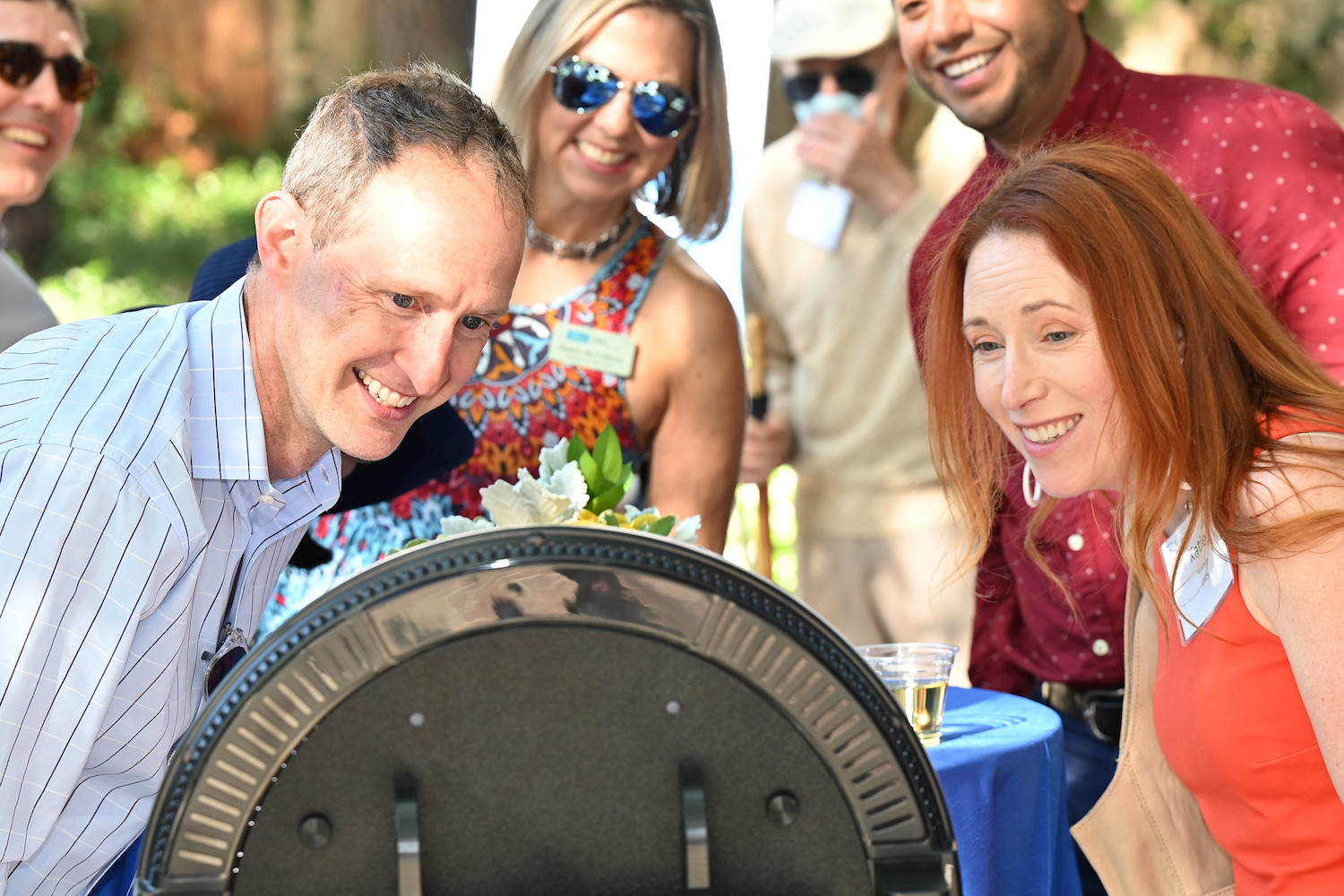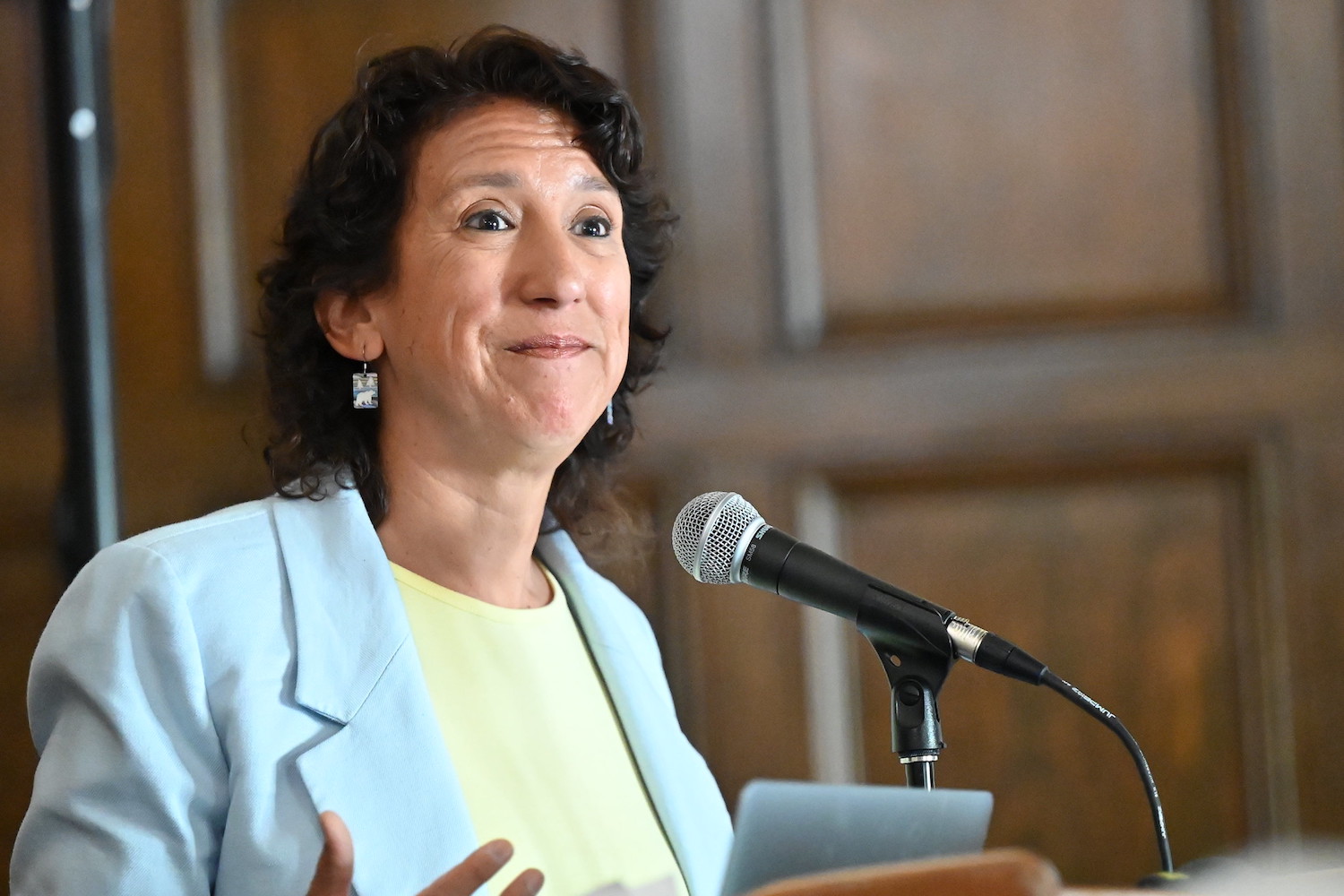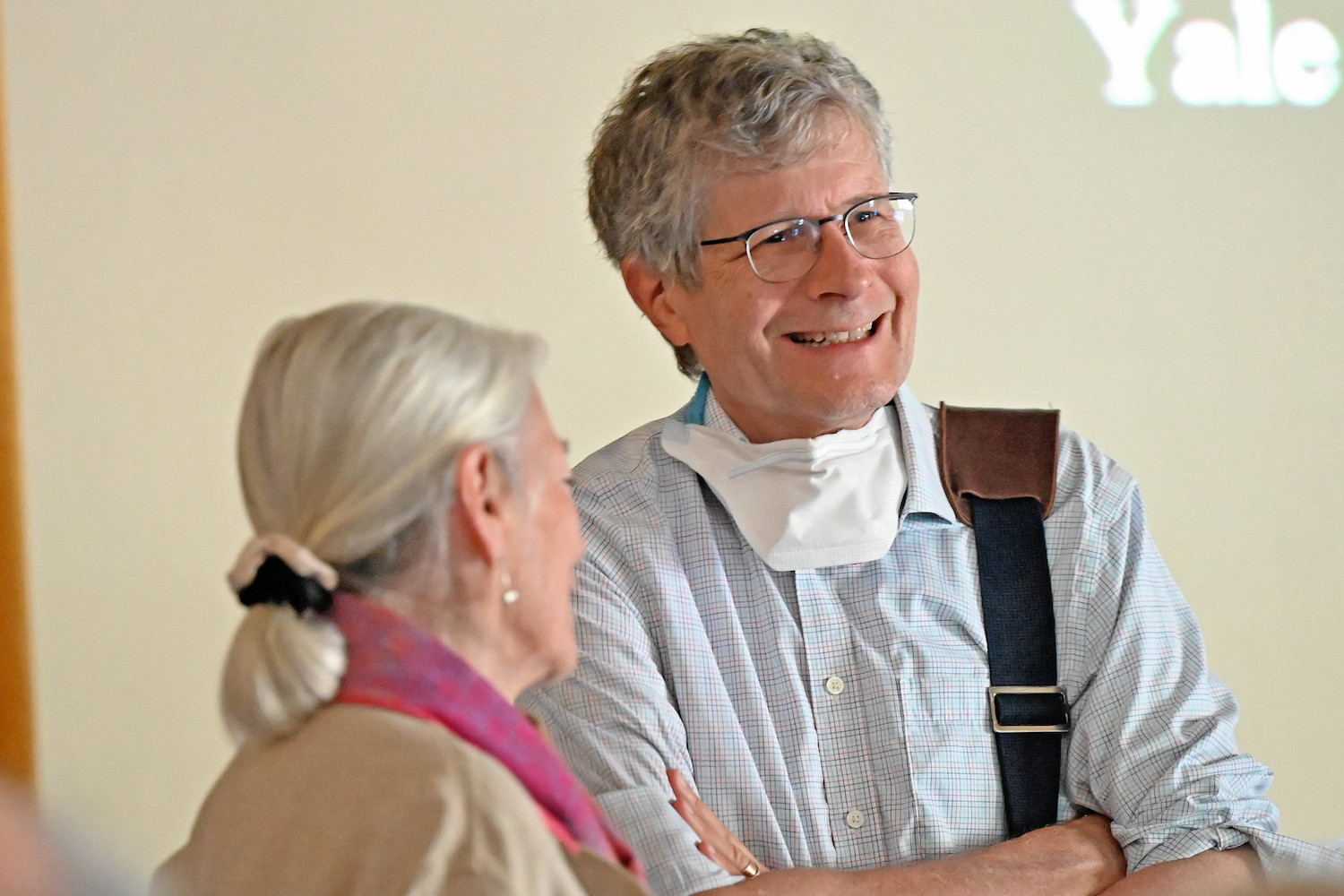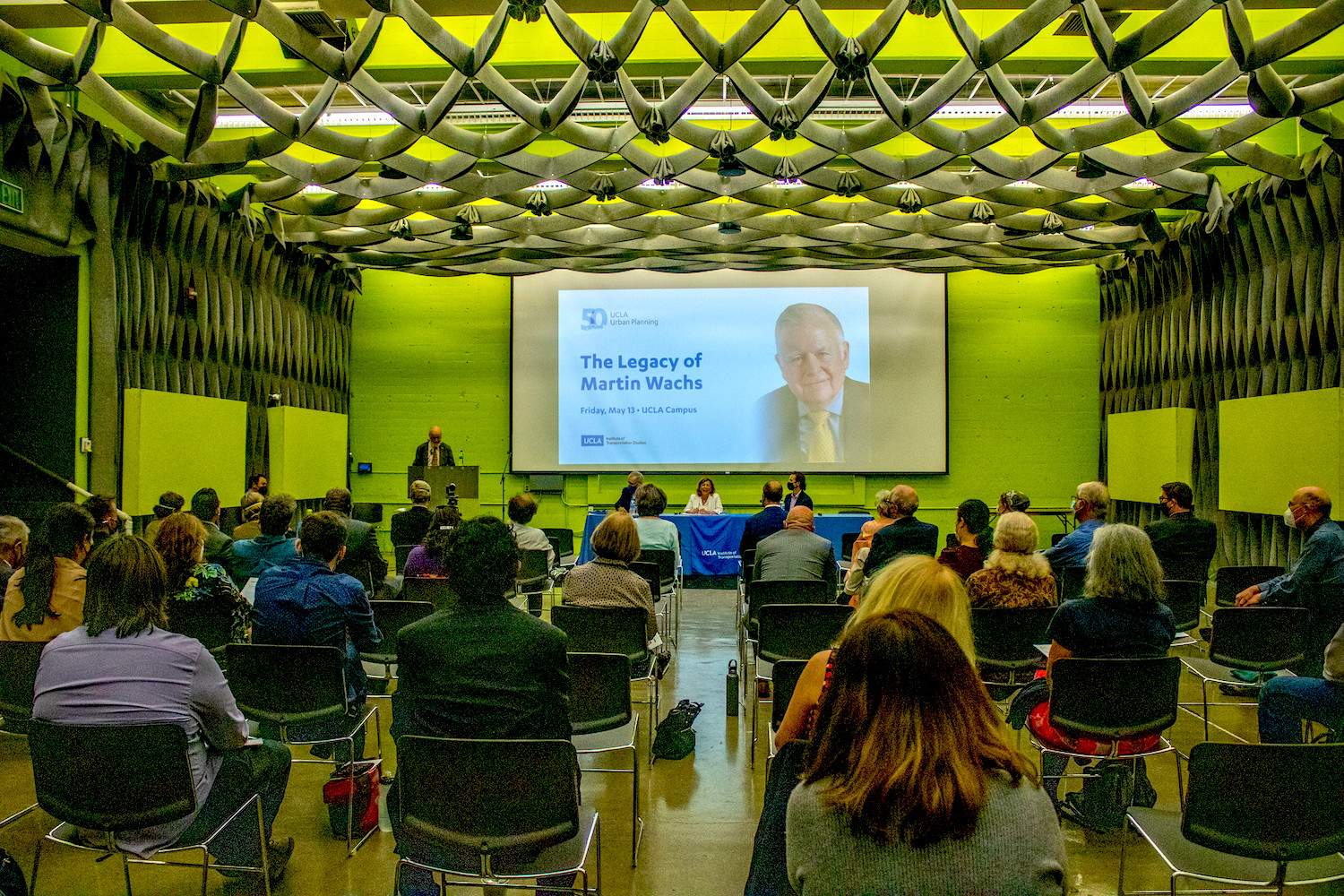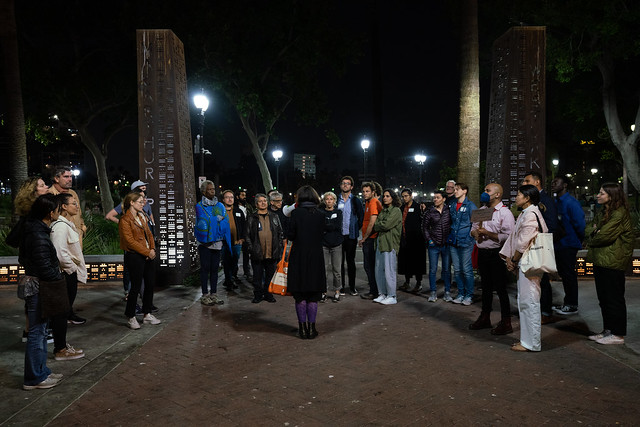By Mary Braswell
In the fight for real climate justice, the smartest strategy is also the simplest: Listen to the people on the front lines.
That was the core message of attorney, environmental advocate and community organizer Elizabeth Yeampierre during a May 3 online dialogue with a UCLA audience.
“The path to climate justice is local,” said Yeampierre, executive director of the New York nonprofit UPROSE and co-chair of the national Climate Justice Alliance. “We don’t need people to helicopter in and determine what’s in our best interest. We know. And we’re really sophisticated at getting this done.”
Communities around the country that stand to bear the brunt of climate change are forging vast coalitions and getting results, she said.
“We’re organizing, base-building, getting policy implemented and putting down infrastructure. … Big stuff that people think is not even possible is happening,” she said.
Yeampierre spoke about the trajectory of UPROSE, which came together in 1966 as a grassroots effort led by the Puerto Rican community of Brooklyn’s industrial Sunset Park. Now, she says, the nonprofit mobilizes residents of all races and every generation who are working to secure their own futures by restoring balance to the planet.
“It means returning the sacred to the mother,” she said, describing a distinctly spiritual and matriarchal dimension of climate adaptation. “Land, air, water, animals, plants, ideas and ways of doing things and living are purposefully returned to their original purpose.”
The movement is powered by young people of color motivated not by a “woke moment,” she said, but because “it was a matter of survival for them to organize.
“Climate change is like nothing we’ve ever experienced. We need to approach this with deep humility, and hold on to each other, share information and build from the bottom up.”
That has not been the approach of government officials, corporations and even the Big Green environmental organizations that use a top-down approach to drive the climate agenda, Yeampierre said.
“It’s easy for people to put a green patina on something … to satisfy their liberal guilt,” she said. “But you don’t get to speak for our communities. How dare you? …
“When you compromise justice, you’re literally compromising our lives. You’re basically saying how many of us can live, how many of us can get sick, and how many of us will die. And I don’t think that the privileged have a right to do that.”
Yeampierre’s UCLA talk was part of the University of California Regents’ Lecturer program and the Harvey S. Perloff Environmental Thinkers Series. The lecture was part of a weekslong commemoration of UCLA Luskin Urban Planning’s 50th anniversary, including appearances by several thought leaders on sustainability. Upcoming speakers include Robert Bullard of Texas Southern University, often described as the father of environmental justice, and Dolores Hayden of Yale University, a scholar of the American urban landscape.
Urban Planning faculty member Kian Goh, who researches social movements and climate change in cities around the world, moderated the conversation with Yeampierre. Goh is associate faculty director of the UCLA Luskin Institute on Inequality and Democracy, which co-sponsored Yeampierre’s lecture.
During the talk, Yeampierre stressed that the United States is at a crossroads as civil rights enshrined for half a century are under attack.
“Whether it’s our voting rights, our reproductive rights, or even our ability to save ourselves from the impact of extreme weather events … we’re here this evening because we know we’re in a moment of deep reckoning, and that the lives of our people are at stake.”
Watch the lecture on Vimeo.
